
by Cindy Levin | Nov 11, 2014 | 2014, Awareness, Elections, USA, World Events, World Moms Blog, World Voice

Cynthia and her daughters take a family selfie after voting
I’m an American and I voted on November 4th. I’m guessing that most of the global readership of World Moms blog didn’t follow our elections because this is not a presidential election year, but that’s okay. A lot of Americans didn’t either. That’s not okay.
Shamefully, only 38% of Americans voted in this November 4th election, which means 6 in 10 of us didn’t vote.
But that’s life. Low voter turn out in the off years of politics is just the way it goes. People tune out without the razzle-dazzle of a presidential slugfest and a new Congress is elected. But, now what do we do if we want to make our country better? Do we have to wait another two years to have a say? No. Not at all!
As angry as some people in my country tend to get with the leader of our country, the president of the United States is not the only one who has influence over policies that have wide-reaching impact on the lives of Americans and all residents of planet Earth. Members of Congress are elected to represent us in our 50 states and have their own measure of power on domestic and global affairs that can help or hinder a presidential agenda. For instance, the president can make budget recommendations, but only Congress can approve the actual spending of money. Budget decisions, foreign aid policies, gun laws, environmental policies, and a host of other choices are made by senators and representatives all year round.
This leads me to my main point. Election day is not the only day when Americans have a voice in government.
Since important decisions are being made every day, then every single day is an opportunity for Americans to shape U.S. policies whether it be through tweeting, blogging, writing letters to the editor, calling members of Congress, writing handwritten letters to Congress, or meeting face-to-face in Congressional offices. All of these actions are open to us. It is our right as citizens. (By the way, even if you’re not a citizen you can still write to U.S. newspapers or use Twitter to organize)
The idea that Americans can only affect what our government does only once every 4 years is a naive and antiquated notion.

U.S. Representative Jan Schakowksy of Illinois reads a letter from Cynthia’s children about supporting global child survival programs.
TV news – or any news, really – would lead anyone to think that voting or contributing large amounts of money are the only things that citizens can do. When so many people don’t know what kinds of effective actions they can personally take, most people end up just frustrated and giving up on our system without ever truly being a part of it. That’s the bad news. The good news is that this huge gap between most citizens and government creates space for concerned citizen lobbyists to slide right in and have great impact. I’m talking about everyday, concerned citizens just like you!
Even a modest amount of 10-20 phone calls on a topic can sometimes greatly influence a member of Congress because few Americans really bother to do it. A constituent meeting face-to-face with congressional staff or an actual member of Congress is even more rare and makes even more impact. These simple actions can have a great effect, especially if it’s an important yet little known issue.
Take, for example, funding to fight tuberculosis (TB), a highly contagious airborne disease. Most people in the U.S. think it doesn’t even exist anymore if they’ve ever thought about it at all. The truth is that in 2012, 8.6 million people fell ill with TB and more than 1.3 million people died from it, making TB the most deadly curable disease in the world. 95% of cases happening in low or middle-income countries, but since it spreads through the air when an infected person coughs, sneezes, or talks it can jump to wealthy nations even easier than Ebola. If treated improperly or ignored, it gives rise to forms of multi drug-resistant TB, which are far more difficult and costly to treat. RESULTS volunteer advocates keep up the drumbeat to members of Congress to fund the very inexpensive treatments to save lives across the globe and in the U.S. to make a tremendous impact on the dignity and income of people in poverty who can keep working in good health. Since no one is actually lobbying against saving lives from TB, a relatively small number of volunteers can educate their elected officials about it and have a huge impact on global health to the tune of $1.1 billion in new resources last year and $1.4 billion overall for the Global Fund to Fight AIDS, TB and Malaria. All this is done by earnest citizens voicing opinions without the media circus of an election cycle.
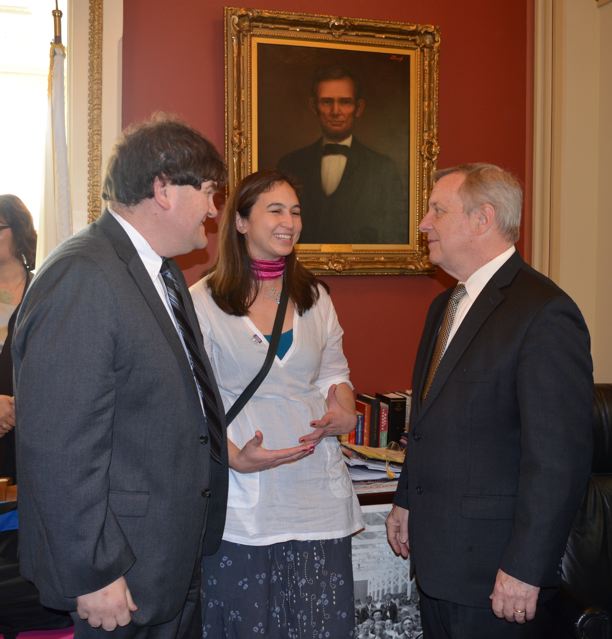
Cynthia and fellow RESULTS activist Richard Smiley talk to U.S. Senator Dick Durbin of IL about microfinance
Every election day, I encourage my fellow Americans to get out and vote, to be sure! That’s where engaged citizenship starts. But we shouldn’t stop there. Let our elected officials know what you want after they’re in office even if – especially if – they are not of the party you favor. Get involved with an advocacy group that shares your global outlook and desires to help mothers and children. (ONE, RESULTS, Shot@Life, and Bread for the World are great places to start) In our country, senators and representatives represent are supposed to work for US. It is your right and privilege to contact them on the issues that are important to you. Don’t waste it!
This is an original post written by Cindy Levin for World Moms Blog.
Do you vote?
Cynthia Changyit Levin is a mother, advocate, speaker, and author of the upcoming book “From Changing Diapers to Changing the World: Why Moms Make Great Advocates and How to Get Started.” A rare breed of non-partisan activist who works across a variety of issues, she coaches volunteers of all ages to build productive relationships with members of Congress. She advocated side-by-side with her two children from their toddler to teen years and crafted a new approach to advocacy based upon her strengths as a mother. Cynthia’s writing and work have appeared in The New York Times, The Financial Times, the Washington Post, and many other national and regional publications. She received the 2021 Cameron Duncan Media Award from RESULTS Educational Fund for her citizen journalism on poverty issues. When she’s not changing the world, Cynthia is usually curled up reading sci-fi/fantasy novels or comic books in which someone else is saving the world.
More Posts - Website
Follow Me:


by ThinkSayBe | Oct 3, 2014 | 2013, 2014, Awareness, Babies, Childhood, Communication, Computers, Discipline, Education, Entertainment, Environment, Family, Girls, Kids, Life, Life Balance, Motherhood, Nature, Parenting, Technology, ThinkSayBe, Uncategorized, USA, World Moms Blog, World Motherhood, Younger Children
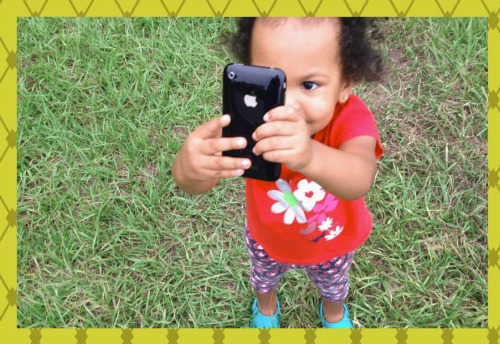 “Yes please, yes please, yes pleeeeease!” is what I hear almost every time my toddler sees or hears my phone. If she does not get it, she isn’t too happy. She may move on to playing with something else, but sometimes comes back pointing at where she last saw my phone, and says “yes please!” again. (more…)
“Yes please, yes please, yes pleeeeease!” is what I hear almost every time my toddler sees or hears my phone. If she does not get it, she isn’t too happy. She may move on to playing with something else, but sometimes comes back pointing at where she last saw my phone, and says “yes please!” again. (more…)
I am a mom amongst some other titles life has fortunately given me. I love photography & the reward of someone being really happy about a photo I took of her/him. I work, I study, I try to pay attention to life. I like writing. I don't understand many things...especially why humans treat each other & other living & inanimate things so vilely sometimes. I like to be an idealist, but when most fails, I do my best to not be a pessimist: Life itself is entirely too beautiful, amazing & inspiring to forget that it is!
More Posts
Follow Me:

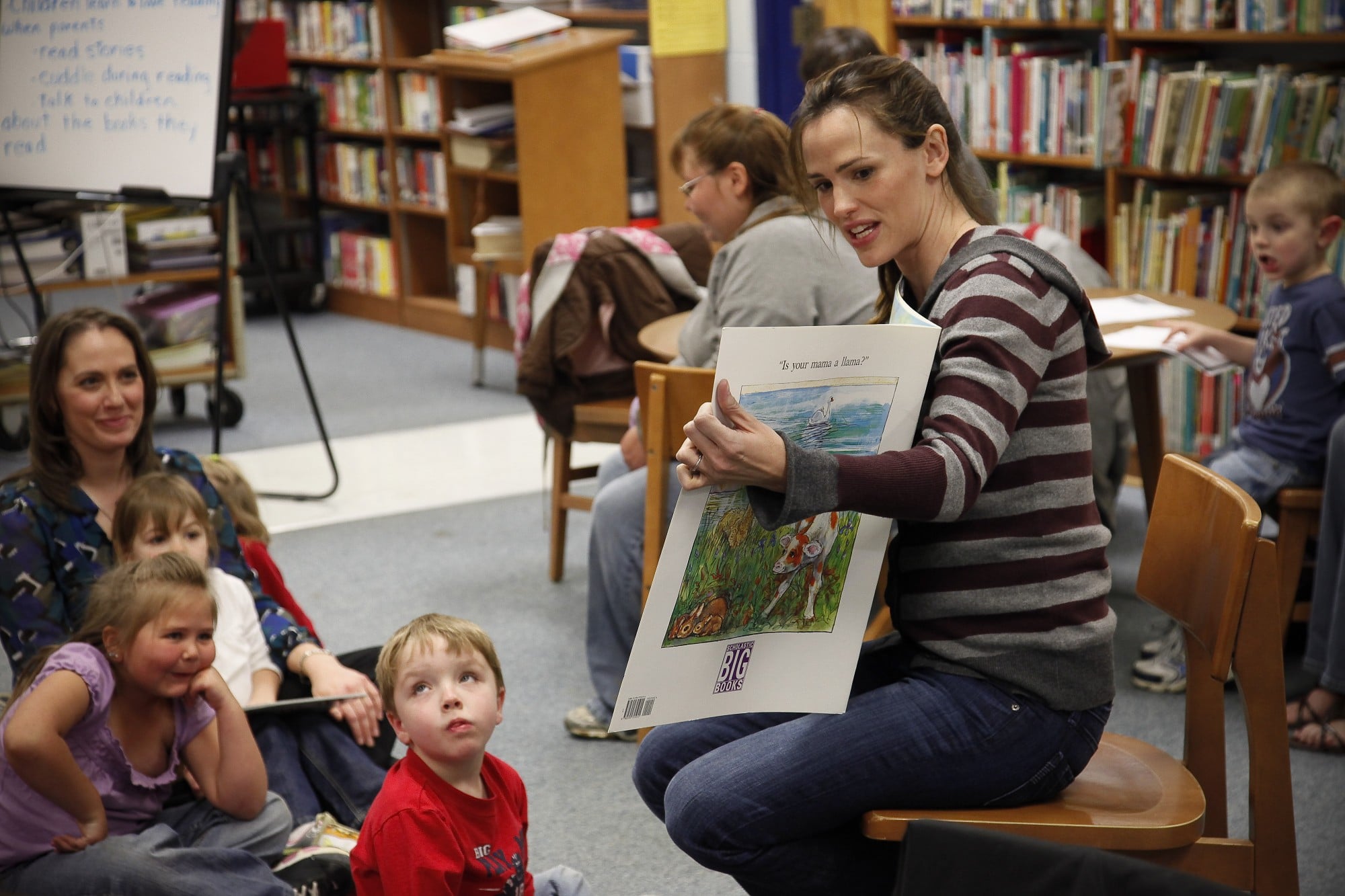
by Elizabeth Atalay | Sep 30, 2014 | 2014, Awareness, Childhood, Education, Humanitarian, Interviews, Preschool, Save The Children, School, Social Good, USA, World Interviews
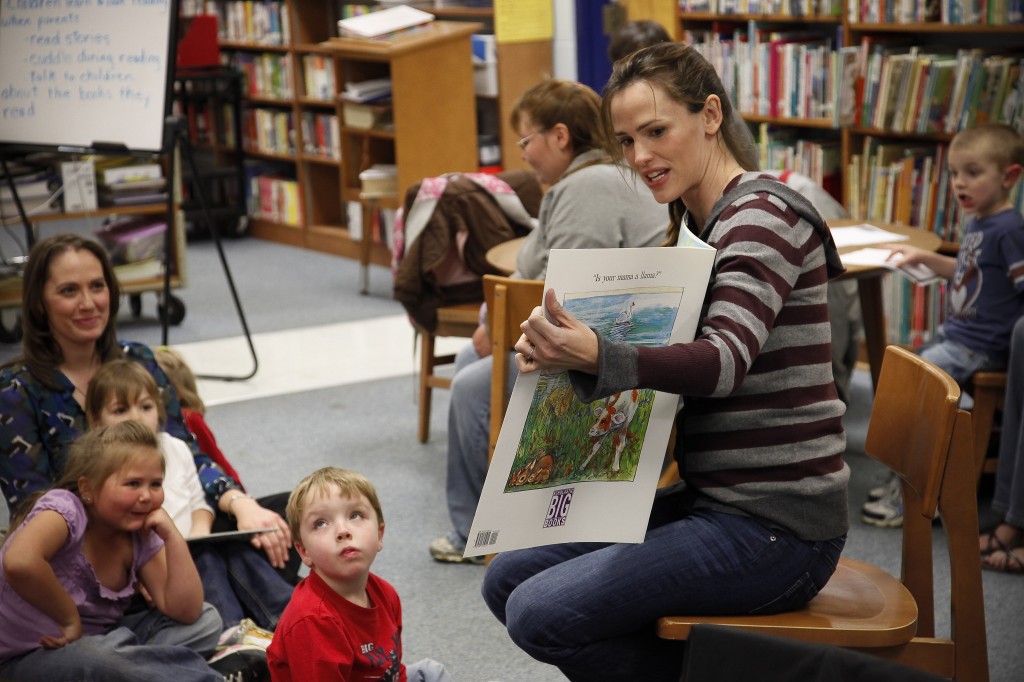
Actor Jennifer Garner visits with school children who are participants of a Save the Children reading program at LBJ Elementary School in, Ky. Photo by David Stephenson
“OPTIMISM”, Jennifer Garner chose the word optimism when we interviewed her about her work with Save The Children and the #FindTheWords campaign. My word had been “LEAD”, Jen Burden’s was “CREATE”, and Stacey Hoffer Weckstein of Evolving Stacey, who did the interview with me, had “COURAGE”. These were our words in the 30 words, 30 days blogger challenge for #FindTheWords to represent the 30 million fewer words kids would learn in homes without early education. In turn, when we had the exciting opportunity to interview her, we asked Jennifer Garner what her word would be.
“If you are working with a baby, with a mom, with a toddler, there is just so much optimism, she explained. I just feel like it’s just the most optimistic thing in the world to work on early childhood stuff”.
The investment in early education is optimism at it’s best. Studies have shown that the impact of early education can have long reaching effects as a child grows up. Kids are better academically prepared, socially adjusted, and tend to stay in school longer when they receive early education. In our conversation Jennifer Garner pointed out that some states have figured out that the money they spend from birth to five years old goes so much further than the recidivism that they would otherwise spend when a child is older and having trouble.
The hard facts cited by Save The Children are that in the United States 1 in 4 children lives in poverty and many do not have a single book in their home. These kids are not read to, and will not have access to a pre-school education. By age three they will have heard an average of 30 million less words than their peers which puts them at a great disadvantage before they even reach school. Ultimately these kids are 70% more likely to be arrested for violent crimes, 40% more likely to become a teen parent and 25% more likely to drop out of school.
“The injustice of it hits me at my very core.” said the mother of three.”So I just feel this drive to help be a part of making it be better.”
Jennifer Garner feels lucky to have come from a home with educated parents, but growing up in rural America, in West Virginia, she was aware that it was education that had made an enormous difference in both of her parents’ lives. In each case they were the first in their families to go to college, and it made her wonder who was around to help other kids like them to succeed without role models? Once she knew that this was the area in which she wanted to use her voice to make a difference, it was Mark Shriver, and Save The Children that she found was making the type of impact she was looking for in rural America.
Taking time out of her busy day with one of her little ones not feeling well, less than two weeks before her latest film, Alexander and the Terrible, Horrible, No Good, Very Bad Day hits theaters, to tell us why the issue of early education resonates with her was gracious beyond belief. She explained that her experience in the field with Save The Children, visiting mothers and children, had only made her want to do more. “The more you are let into people’s homes, and into people’s lives, and into people’s struggles, the more driven you become to do what you can to help them.”
Of the mothers she has had the chance to visit Jennifer says often “These moms are isolated, they’re tired, they don’t have mom friends or computers to read what you guys are writing about or to be encouraged.” ….” so when Save The Children rolls up and goes once a week to see them, they bring them books , they bring light, they bring life. And the main thing that I love to see is they bring encouragement for these moms.”
I asked Jennifer Garner her wish for all moms, to which she replied….
“Motherhood is the great equalizer, right? We’re all, as soon as you have a baby, we all have the same love and hopes, and dreams, and fears, and vulnerabilities, and I would just hope that nobody feels like they are going through it alone……it’s really hard to do on your own”
That’s exactly how we feel in our global community of World Moms, we are here to remind each other that we are not alone, in this crazy adventure of motherhood.
This is an original post written for World Moms Blog by Elizabeth Atalay. Elizabeth had the opportunity to interview Jennifer Garner as part of the #FindTheWords campaign with Save The Children. She also writes at documama.org.

Elizabeth Atalay is a Digital Media Producer, Managing Editor at World Moms Network, and a Social Media Manager. She was a 2015 United Nations Foundation Social Good Fellow, and traveled to Ethiopia as an International Reporting Project New Media Fellow to report on newborn health in 2014. On her personal blog, Documama.org, she uses digital media as a new medium for her background as a documentarian. After having worked on Feature Films and Television series for FOX, NBC, MGM, Columbia Pictures, Warner Brothers, 20th Century Fox, and Castle Rock Pictures, she studied documentary filmmaking and anthropology earning a Masters degree in Media Studies from The New School in New York. Since becoming a Digital Media Producer she has worked on social media campaigns for non-profits such as Save The Children, WaterAid, ONE.org, UNICEF, United Nations Foundation, Edesia, World Pulse, American Heart Association, and The Gates Foundation. Her writing has also been featured on ONE.org, Johnson & Johnson’s BabyCenter.com, EnoughProject.org, GaviAlliance.org, and Worldmomsnetwork.com. Elizabeth has traveled to 70 countries around the world, most recently to Haiti with Artisan Business Network to visit artisans in partnership with Macy’s Heart of Haiti line, which provides sustainable income to Haitian artisans. Elizabeth lives in New England with her husband and four children.
More Posts
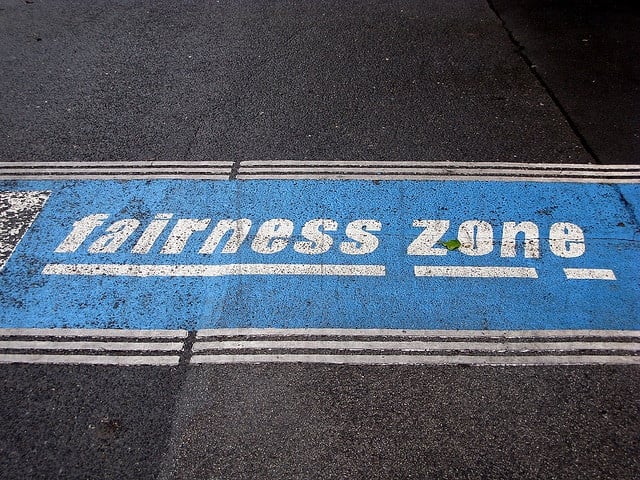
by Meredith (USA) | Sep 26, 2014 | 2014, Awareness, Communication, Family, Kids, Motherhood, Parenting, Siblings, USA, World Motherhood, Younger Children
 If you will have, do have, or have ever had a nine year old boy in your life, you have probably heard this ever common, often blood curdling statement, “That’s not fair!” I hear it multiple times a day from my own nine year old son. I thought it was a phrase which would never end, and apparently even, we, as adults, struggle with perceived unfairness in our own lives quite often. (more…)
If you will have, do have, or have ever had a nine year old boy in your life, you have probably heard this ever common, often blood curdling statement, “That’s not fair!” I hear it multiple times a day from my own nine year old son. I thought it was a phrase which would never end, and apparently even, we, as adults, struggle with perceived unfairness in our own lives quite often. (more…)
Meredith finds it difficult to tell anyone where she is from exactly! She grew up in several states, but mainly Illinois. She has a Bachelor of Science degree in Elementary Education from the University of Illinois at Champaign/Urbana which is also where she met her husband. She taught kindergarten for seven years before she adopted her son from Guatemala and then gave birth to her daughter two years leter. She moved to Lagos, Nigeria with her husband and two children in July 2009 for her husband's work. She and her family moved back to the U.S.this summer(August 2012) and are adjusting to life back in the U.S. You can read more about her life in Lagos and her adjustment to being back on her blog: We Found Happiness.
More Posts

by Shaula Bellour (Indonesia) | Sep 25, 2014 | 2014, Childhood, Expat Life, Family Travel, Holiday, Indonesia, Shaula Bellour, Twins, UK, Uncategorized, USA
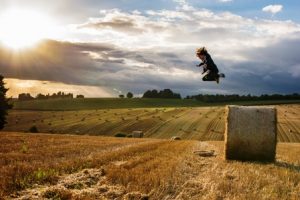 From the window, I can hear high-pitched giggles and the sound of wellington boots on garden path gravel.
From the window, I can hear high-pitched giggles and the sound of wellington boots on garden path gravel.
My daughter is next door with her new neighbor friend, pretending that the garden shed is an animal rescue center and the backyard chickens are actually wild monkeys. My son is bouncing on a trampoline with the friend’s big sister and I can see their carefree bodies flying above the wheat fields, in the shadow of the village church.
It’s past their usual school-night bedtime, but the sun is still high and we’ve stopped keeping track of these things anyway. Evidence of the day’s activities is scattered on the grass: badminton birdies, a rainbow of half-finished loom band bracelets, a decorated cardboard lean-to and sticky signs of an earlier snail race.
Both kids return with dirty feet and ice cream on their faces and I’m pretty sure they forgot to wash their hands after petting the donkey across the road. But it’s okay. It’s the summer holidays in rural England and it feels like the stuff childhood is made of. The only catch is that it’s not where we live…
Life is a series of trade-offs.
Back in Jakarta, we’re on our way to school and my children want to know why we don’t live in England. “Well…because we live here”, I respond simply, feeling a sharp pang of guilt. I go on to explain that day-to-day life in England would probably be different than the idyllic summer version. For example, instead of playing all day, they would have to go to school and soon the long sunny days would turn cold and wet. “That’s okay!” they chirp, happily unconvinced.
Luckily the conversation shifts and together we watch the city float past our car window. The daily mosaic of life here is colorful, chaotic and always fascinating. We read shop signs, point out our favorite kaki lima food carts and compete to find the most interesting motorcycle cargo…from pallets of baby chicks to enormous balloon bundles.
We talk about their new school classes and where all the children are from, realizing that there are nearly as many nationalities as students. We think about where we might like to travel for their half-term break and marvel at how lucky we are to be so close to so many amazing destinations.
Life is a series of trade-offs.
Sometimes, I feel sad about the fact that our children are growing up so far away from their grandparents, aunts, uncles and cousins. But then I am also reminded that since our family is both British and American, we will always be far from someone we love regardless of where we live. We do the best we can to stay connected and are grateful for the precious time we get to spend together.
Occasionally, I see photos of my friends’ frolicking children and feel a twinge of regret that my own kids are missing out on the places and experiences I enjoyed as a child growing up in the US.
But then I examine my own assumptions…does their childhood need to resemble my own for it to be good? Of course not. My children may not learn to ski anytime soon, but they are seeing and doing so much more than I ever dreamed of at their age.
Life is a series of trade-offs.
I tell myself that we are lucky to enjoy the best of both worlds. But in reality, we can’t have it both ways.
This is the path we’ve chosen and there are limitations as well as benefits. Accepting these trade-offs brings a certain kind of relief and shifts the focus — emphasizing what we have instead of what we’re missing.
It’s a process, but I’m getting there.
How do you and your family balance life’s trade-offs?
This is an original post for World Moms Blog by Shaula Bellour.
Photo Credit: ClairOverThere. This image holds a Flickr Creative Commons attribution license.
Shaula Bellour grew up in Redmond, Washington. She now lives in Jakarta, Indonesia with her British husband and 9-year old boy/girl twins. She has degrees in International Relations and Gender and Development and works as a consultant for the UN and non-governmental organizations.
Shaula has lived and worked in the US, France, England, Kenya, Eritrea, Kosovo, Lebanon and Timor-Leste. She began writing for World Moms Network in 2010. She plans to eventually find her way back to the Pacific Northwest one day, but until then she’s enjoying living in the big wide world with her family.
More Posts

by Nadege Nicoll | Sep 5, 2014 | 2014, Family, Home, Kids, Me-Time, Milestones, Motherhood, Nadege Nicoll, Parenting, School, Time, USA, World Motherhood, Younger Children
 Back to school is not just about kids getting a new backpack, and a box of crayons. On back to school day, everybody in the family is going “back” to something. A norm, a rhythm, a routine. (more…)
Back to school is not just about kids getting a new backpack, and a box of crayons. On back to school day, everybody in the family is going “back” to something. A norm, a rhythm, a routine. (more…)
Nadege Nicoll was born in France but now lives permanently in New Jersey with her family. She stopped working in the corporate world to raise her three children and multiple pets, thus secretly gathering material for her books. She writes humorous fictions for kids aged 8 to 12. She published her first chapter book, “Living with Grown-Ups: Raising Parents” in March 2013. Her second volume in the series just came out in October 2013. “Living with Grown-Ups: Duties and Responsibilities” Both books take an amusing look at parents’ inconsistent behaviors, seen from the perspective of kids. Nadege hopes that with her work, children will embrace reading and adults will re-discover the children side of parenthood. Nadege has a few more volumes ready to print, so watch this space…
More Posts - Website
Follow Me:









 “Yes please, yes please, yes pleeeeease!” is what I hear almost every time my toddler sees or hears my phone. If she does not get it, she isn’t too happy. She may move on to playing with something else, but sometimes comes back pointing at where she last saw my phone, and says “yes please!” again.
“Yes please, yes please, yes pleeeeease!” is what I hear almost every time my toddler sees or hears my phone. If she does not get it, she isn’t too happy. She may move on to playing with something else, but sometimes comes back pointing at where she last saw my phone, and says “yes please!” again. 


 If you will have, do have, or have ever had a nine year old boy in your life, you have probably heard this ever common, often blood curdling statement, “That’s not fair!” I hear it multiple times a day from my own nine year old son. I thought it was a phrase which would never end, and apparently even, we, as adults, struggle with perceived unfairness in our own lives quite often.
If you will have, do have, or have ever had a nine year old boy in your life, you have probably heard this ever common, often blood curdling statement, “That’s not fair!” I hear it multiple times a day from my own nine year old son. I thought it was a phrase which would never end, and apparently even, we, as adults, struggle with perceived unfairness in our own lives quite often. 


 Back to school is not just about kids getting a new backpack, and a box of crayons. On back to school day, everybody in the family is going “back” to something. A norm, a rhythm, a routine.
Back to school is not just about kids getting a new backpack, and a box of crayons. On back to school day, everybody in the family is going “back” to something. A norm, a rhythm, a routine. 



